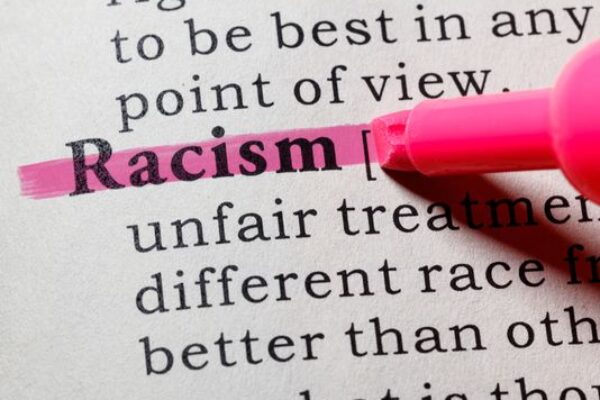America, we have a racism problem. This is not a profound observation. In fact, just recently, former White House aide Omarosa Manigault accused President Donald Trump of being a racist. These accusations, of course, are not new.
But her accusations underscore a problem: calling someone a racist. The definition of racism in America has become like Justice Potter Stewart’s definition of pornography, that is, people think that they “know it when they see it.”
But is that true? Do people really know what racism is when they hear it or see it? No, many don’t. And that’s the problem.
According to a recent Quinnipiac University poll, almost half of the country thinks Donald Trump is a racist. Critics of Trump point to the numerous statements and incidents that would seem to be obvious examples of racism. Yet defenders of Trump argue that he is not racist, with some asserting that you can’t prove what is in someone’s heart. This is an earnest, if not convenient, defense that ultimately is unprovable. We can’t literally know what is in Trump’s heart, or anyone else’s heart for that matter. We can only go by words and actions, and even these are subject to different interpretations.
In a recent op-ed historian Carol Anderson argued that if we want to end racism we need to stop forgiving racists. The “American penchant for unconditional forgiveness,” she argued, “is at the root of our present turmoil.”
However, there is one important point that Anderson does not address. How can we hope to end racism if we can’t even agree on what racism is and who is a racist?
Here is a quick thought exercise. Answer these questions to yourself. Are the beliefs espoused by Neo Nazis and the Ku Klux Klan racist? [Most people would say yes.] Is calling someone the n-word or some other racial epithet an act of racism? [Most people would say yes.] Does calling someone a racial epithet make one a racist? [Although many people would say yes, there may be some disagreement due to factors such as context, frequency, etc.]
This thought exercise underscores the problem when there is not a shared consensus and understanding of what constitutes racism. The psychologist James Jones provided a well-known psychological definition of racism. He defined racism as the belief in the superiority of one’s own race and the inferiority of another race combined with the power to take individual and collective action against racial groups believed to be inferior.
As scholars and social scientists, we have the responsibility of researching and teaching about racism. We also have a civic responsibility to educate the public about what we know and teach. However, we have not done a good enough job of educating the public about what we know and teach regarding racism.
For those of us who study and teach about race, we can look at Trump’s words and actions and easily declare them to be racist, yet we have largely not been effective in explaining why. When Trump makes comments about the “low IQ” of Maxine Waters, mocks the intelligence of LeBron James and calls Don Lemon the “dumbest man” on TV, he is making explicit overtures to one of the oldest and most racist stereotypes about African Americans having low intelligence. At the very least, it is tinged with racist motivations.
We will not end racism until people are honest about their own racism and understand that racism is more than the blatant, egregious examples of saying the n-word or wearing a white hood or burning a cross.
One can reasonably support Trump’s tax cuts, deregulation and anti-globalization policies without being racist. However, it is indisputable that Trump’s words and actions have created a climate that has emboldened racism and white supremacy. In fact, a report by the Center for the Study of Hate and Extremism found that hate crimes reported to police in America’s 10 largest cities rose 12.5 percent in 2017.
The silence, or at best tepid responses, from some Americans on matters of racism is telling. To his credit, fellow Republican Mitt Romney has said that it should be “electorally disqualifying to equivocate on racism.” A good start to ending racism would be to not elect racists.
Kevin Cokley is the Oscar and Anne Mauzy Regents Professor of Educational Research and Development, and director of the Institute for Urban Policy Research and Analysis at The University of Texas at Austin. He is also a fellow of the UT System Academy of Distinguished Teachers.
A version of this op-ed appeared in the San Antonio Express News and Austin American Statesman.
To view more op-eds from Texas Perspectives, click here.
Like us on Facebook.




